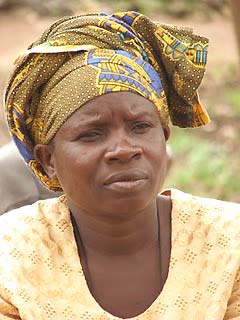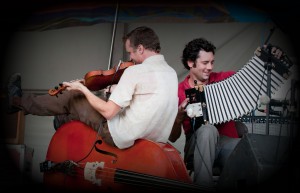 Today our show will be all about work and will focus on different work situations. You will first listen to an interview with Kyle Hickman from California who did an internship with a German newspaper, then to Mathew Dunne, a plumber from New Zealand, who worked in England and who is currently working in Munich, Germany. Also, I interviewed Judi McAlpine, an American manager who quit her job to found a non-profit organization in Tanzania. Adelheid Korpp will tell us her reasons, why Facebook will never play a role for her, neither in her working life or her private life.
Today our show will be all about work and will focus on different work situations. You will first listen to an interview with Kyle Hickman from California who did an internship with a German newspaper, then to Mathew Dunne, a plumber from New Zealand, who worked in England and who is currently working in Munich, Germany. Also, I interviewed Judi McAlpine, an American manager who quit her job to found a non-profit organization in Tanzania. Adelheid Korpp will tell us her reasons, why Facebook will never play a role for her, neither in her working life or her private life.
absolutely committed
In our first category I talk to Kyle Hickman from California. At the time of the interview, Kyle was doing an internship with a big national newspaper in Germany, the “Frankfurter Allgemeine Zeitung“, and told us a little about the cultural differences he had noticed between California and Germany. For example, he seems to have detected a difference in attitude towards interns who are doing a practical training in a company. While he expected to be exploited as cheap labour – making coffee, copies or “cold calls” he noticed that his internship in Germany was really centered on the professional development of the intern – often even based on the intern’s personal likes and interests. So, from the beginning Kyle was trusted with what he calls “real work” and was able to contribute to the success of the newspaper. However, he also found out that smiling too much in the work place could be seen as suspicious in his host country and adapted his behavior accordingly. He did not find it difficult to integrate, though, as he grabbed every opportunity to be social with his co-workers. Listen out for what Kyle shares about eye-contact and how he had to adapt to a different culture.
absolutely careful
In our second category I talk to Adelheid Korpp. She is responsible for the so-called “incoming students” at RheinAhrCampus. Students from our partner universities who have been in contact with her often want to add her as a friend to their Facebook accounts. However, Adelheid is suspicious of being part of this biggest virtual community in the world. Well, she is probably right because life was difficult and complex enough before we had to check Facebook and Twitter. Sharing your personal information and pictures on the internet can, indeed, sometimes perhaps be harmful for you and for your career. So let’s find out, why she doesn’t want to take part in the big social media hype.
absolutely helpful
In our third category I interviewed Judi McAlpine from the US when we both met in Cambodia earlier this year. Judi was a very successful manager for a huge company in the US. But then she transferred all her resources into a 2-years stay in Tanzania, where she lived in the villages with indigenous people and founded a charity. JUAF is a registered non-profit charity located in the Kikwe village of Tanzania. In partnership with indigenous women, Judi founded a village with resources for vulnerable women and children to empower them to fight poverty. This is done through micro financing, education, and support. Check out their blog for more information. But why would someone like Judi give up her well-paid job in the US to move to third-world-country?
absolutely tradie
In our last category I Interview Mat Dunne who is a plumber from New Zealand. He has travelled a lot around the world for his work. He worked in Canada and in England. Right now he is living in Munich, Germany. In every step of his life he experienced different cultural situations. In the interview he will tell us about the differences in reputation between “tradies” in New Zealand and craftsmen in Europe. It is, indeed, true that the same profession may have very different prestige and reputation in different countries. I was personally surprised during my time in Australia to find that “tradies, unlike their often bourgeois German counterparts would mostly be very good-looking guys with a cool hair- and life style and a surfboard on their cars so that in between two customers they would hop on their boards and enjoy the surf. On page 3 of cheap newspapers you would sometimes even find the picture of a shirtless “tradie of the month”.
Our next show will be coming to you from Anne Fox in Denmark on 14 October
Until then –
Bleiben Sie absolut interkulturell!
The host of this show is: Dr. Laurent Borgmann
Editor: Markus Scherer



